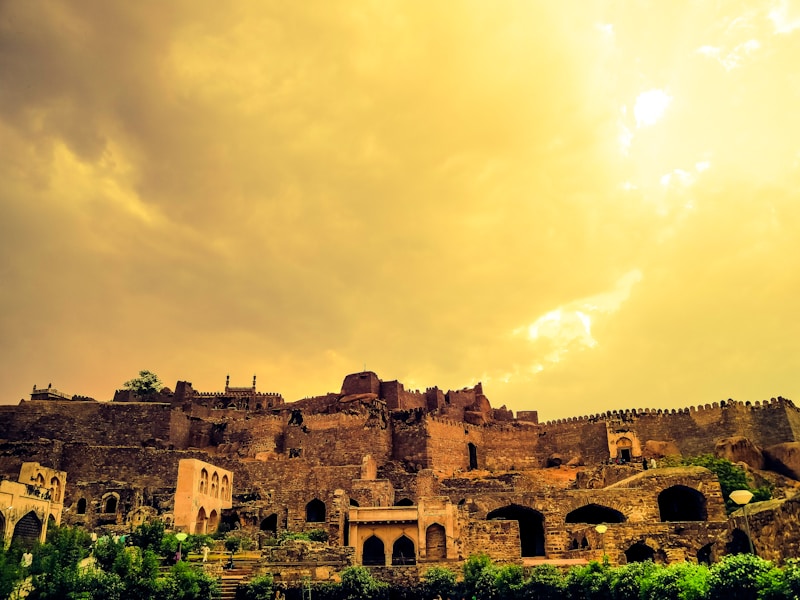Podcast
Questions and Answers
What was the primary reason for the formation of the All India Khilafat Committee in 1919?
What was the primary reason for the formation of the All India Khilafat Committee in 1919?
What was the demand of Indian Muslims regarding the Khalifa's control?
What was the demand of Indian Muslims regarding the Khalifa's control?
What was the immediate reason for the unification of Congress and the Muslim League during the mass movements of 1919-1922?
What was the immediate reason for the unification of Congress and the Muslim League during the mass movements of 1919-1922?
What event triggered Mahatma Gandhi's decision to launch Satyagraha and non-cooperation against the government?
What event triggered Mahatma Gandhi's decision to launch Satyagraha and non-cooperation against the government?
Signup and view all the answers
What was the outcome of the All India Khilafat Conference held in Delhi in November 1919?
What was the outcome of the All India Khilafat Conference held in Delhi in November 1919?
Signup and view all the answers
What was the significance of the House of Lords' endorsement of General Dyer's action?
What was the significance of the House of Lords' endorsement of General Dyer's action?
Signup and view all the answers
What was Mahatma Gandhi's role in the Khilafat Movement?
What was Mahatma Gandhi's role in the Khilafat Movement?
Signup and view all the answers
What was the main reason for the Indian Muslims' support to the British government during World War I?
What was the main reason for the Indian Muslims' support to the British government during World War I?
Signup and view all the answers
What was the outcome of the Montagu-Chelmsford Reforms?
What was the outcome of the Montagu-Chelmsford Reforms?
Signup and view all the answers
What was the primary goal of the Khilafat Movement?
What was the primary goal of the Khilafat Movement?
Signup and view all the answers
What was the impact of World War I on the Indian economy?
What was the impact of World War I on the Indian economy?
Signup and view all the answers
What was the impact of the Khilafat Movement on the Indian National Congress?
What was the impact of the Khilafat Movement on the Indian National Congress?
Signup and view all the answers
What was the result of the allied powers' victory in World War I?
What was the result of the allied powers' victory in World War I?
Signup and view all the answers
When did the Khilafat Movement take place?
When did the Khilafat Movement take place?
Signup and view all the answers
What was the significance of the Khilafat issue in the Indian freedom struggle?
What was the significance of the Khilafat issue in the Indian freedom struggle?
Signup and view all the answers
What was the common factor behind the Khilafat and Non-Cooperation movements?
What was the common factor behind the Khilafat and Non-Cooperation movements?
Signup and view all the answers
Study Notes
Mass Movements in India (1919-1922)
- Two mass movements were organized to oppose British rule in India: Khilafat Movement and Non-Cooperation Movement
- Both movements adopted a unified plan of action of non-violence and non-cooperation
- This period saw the unification of Congress and the Muslim League, with joint political demonstrations
Causes of the Movements
- Government Hostilities:
- Rowlatt Act, imposition of martial law in Punjab, and Jallianwalla Bagh massacre exposed the brutal face of British rule
- Hunter Commission's investigation into Punjab atrocities was ineffective
- House of Lords endorsed General Dyer's actions
- Discontented Indians:
- Montagu-Chelmsford Reforms failed to satisfy the demand for self-government
- Economic Hardships:
- Post-War economic situation was alarming, with rising prices, decreased production, and increased taxes and rents
- Economic hardship strengthened anti-British sentiment across all sections of society
Khilafat (Caliphate) Issue
- Turkey's Alliance against British:
- Sultan of Turkey was regarded as the spiritual leader (Khalifa) by Muslims worldwide, including in India
- Turkey allied with Germany and Austria against the British during World War I
- Discontented Indian Muslims:
- Indian Muslims supported the government during World War I, expecting the Ottoman Empire's sacred places to remain under Khalifa's control
- After the war, the Ottoman Empire was divided, Turkey was dismembered, and the Khalifa was removed from power
- This angered Indian Muslims, who saw it as an insult to the Khalifa
Khilafat Movement
- Khilafat Committee:
- Formed in early 1919 under the leadership of the Ali brothers, Maulana Abul Kalam Azad, Ajmal Khan, and Hasrat Mohani
- Aims to force the British Government to change its attitude towards Turkey
- Demands of Indian Muslims:
- Khalifa's control over Muslim sacred places should be retained
- Khalifa should be left with sufficient territories after territorial arrangements
- Congress' Initial Stand:
- Initially, Congress was not united on supporting the Khilafat movement with Satyagraha and non-cooperation
- Later, Congress decided to support the movement, recognizing the opportunity to unite Hindus and Muslims and bring Muslim participation in mass movements
- Muslim League also decided to support the Congress and its agitation on political questions
Non-Cooperation Movement
- Role of Mahatma Gandhi:
- Began organizing peasants and laborers' protests against atrocities in Kheda, Champaran, and Ahmedabad
- Non-Cooperation Movement was the beginning of the Gandhian Movement against the British
Studying That Suits You
Use AI to generate personalized quizzes and flashcards to suit your learning preferences.
Description
Test your knowledge of the Khilafat and Non-Cooperation movements, which played a crucial role in India's struggle for freedom from British rule in the early 20th century.




